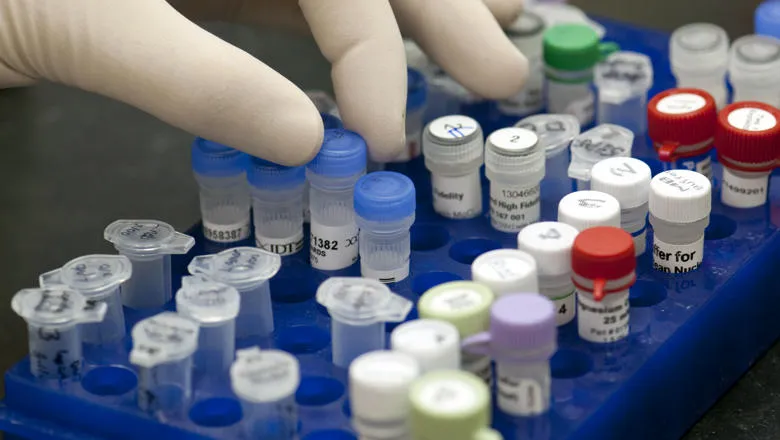10 May 2019
Research Fellow in Chemistry Dr Eamonn Reading wins government investment for future leaders in science
Dr Eamonn Reading, Research Fellow in the Department of Chemistry, has been awarded a Future Leaders Fellowship by the UK government, a scheme designed to help researchers and innovators become world leaders in their fields.

Eamonn will benefit from a share of £40 million towards cutting edge research addressing fundamental global issues, supported by a total £900 million government investment over three years. This aims to help people from academic backgrounds work closely with business to take their discoveries from the laboratory to the commercial market. The investment is part of the government’s modern Industrial Strategy, which sets out to maintain the UK’s world-leading science base while addressing real-world challenges.

The Fellowship will support Eamonn’s work on membrane proteins, an important subset of proteins. Proteins are an essential class of biomacromolecule and perform a wide range of cellular processes critical for life. The structure, movement and interplay of biomacromolecules ultimately determines cellular health.
Membrane proteins reside within cellular membranes, accounting for about 30% of all cellular proteins. They perform a plethora of functions vital for cellular survival, making them essential for all life and, consequently, key drug targets.
Eamonn’s research team will focus on the determination of structural dynamic information of membrane proteins directly within their native cellular membrane environment(s). It is important to understand the structural dynamics of proteins, as their fluctuations frequently represent motions and states that are critical for their function.
The team will focus on developing their methods in the context of multidrug efflux membrane protein systems, which are known to play major roles in antibiotic and multidrug resistance. This will enable an unprecedented insight into their structure, dynamics, and function, particularly on the impact of drug binding and the influence of clinically relevant mutations.
On receiving the Fellowship, Eamonn said:
‘What really excites me is that this Fellowship provides me with the dedicated resources and time to synthesise my own laboratory. Its long-term funding will allow me to develop myself and my laboratory members into leaders in the field of membrane protein structural biology, enabling the achievement of my long-term vision: to develop bioanalytical tools which can address global societal challenges, such as antibiotic resistance, and be widely adopted across bioscience and pharmaceutical research communities.’
